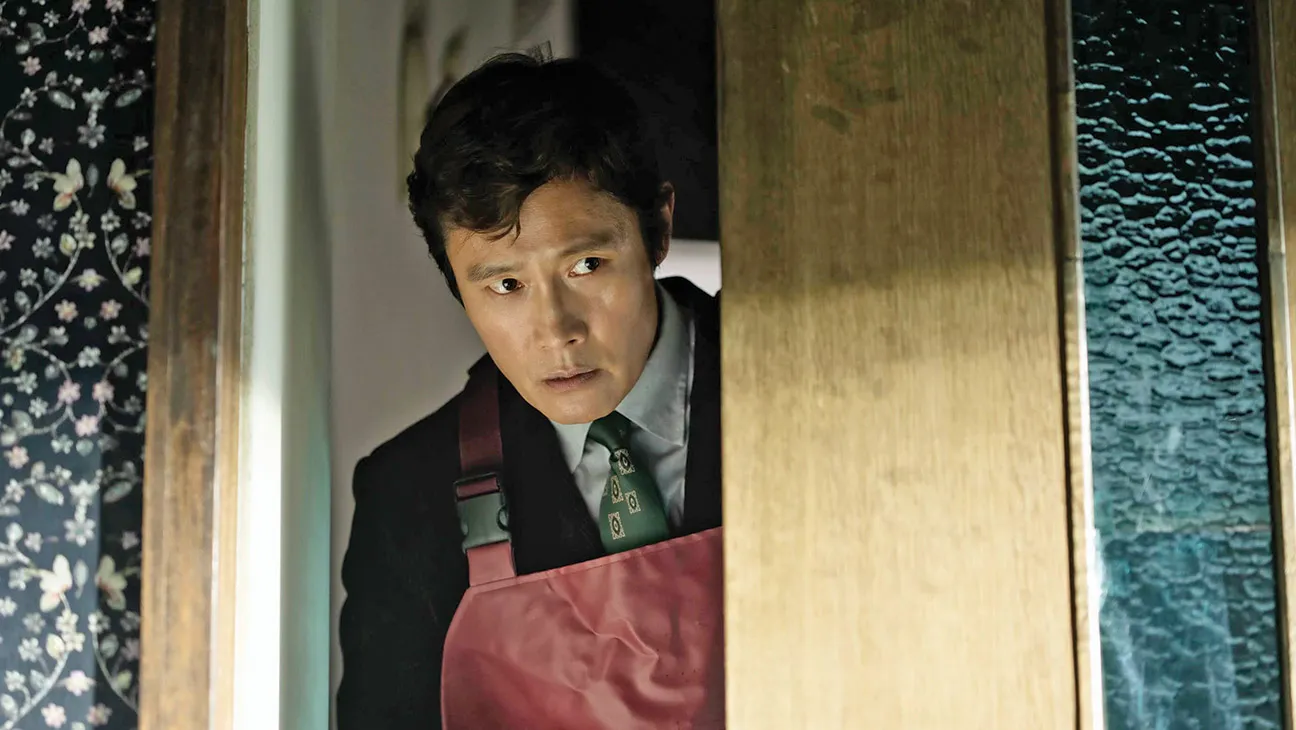
The Busan International Film Festival (BIFF) celebrates its 30th anniversary this week, marking an improbable three-decade success story of lifting Korean cinema to global prominence.
Launched in 1996 as Korea’s first international film festival — a “small but prestigious” event with 169 films from 31 countries — BIFF has since exploded into Asia’s largest cinema showcase.
Over the years, the festival has helped discover many Asian directors now regarded as some of the world’s top auteurs. Filmmakers like Bong Joon-ho, Park Chan-wook and Lee Chang-dong had early works embraced at Busan, alongside regional auteurs like Japan’s Hirokazu Kore-eda, China’s Jia Zhangke and Iran’s Jafar Panahi — helping to fuel the broader Korean Wave and Asian content’s rise worldwide.
The festival is also justly famed for its soju-fueled late nights along Busan’s Haeundae Beach, which has served as a formative melting pot for the broader Asian industry for years. It’s a place where cinematic discoveries are made by day and new industry ties are forged after dark, over a spicy bowl of sogogi gukbap or at impromptu after-parties in the city’s countless noraebang (karaoke bars).
This year’s milestone edition, running Sept. 17-26, also comes after a turbulent few years that tested the festival’s resilience. BIFF famously stood up for artistic freedom in 2014 by screening a hard-hitting political documentary, The Truth Shall Not Sink with Sewol (aka Diving Bell), against government pressure — a move that led to a harsh backlash from conservative authorities and the temporary ouster of longtime festival head Lee Yong-kwan. More recently, internal scandals rocked the organization: in 2023, festival director Huh Moon-young resigned amid #MeToo-era sexual harassment allegations (and accusations of an attempted cover-up). The turmoil triggered management shake-ups and even threatened the 2023 festival’s viability.
Yet Busan has emerged from this dark patch with a renewed sense of purpose. A new leadership team is in place — including festival director Jung Han-seok (a veteran BIFF programmer appointed in March 2025) and BIFF chairperson Park Kwang-su — tasked with restoring stability and ambition. They have wasted no time in making bold changes: for the first time ever, BIFF 2025 has introduced an official competition section and “Busan Awards,” stepping up to join the ranks of A-list global festivals that create lasting cultural acclaim and influence with their trophies.
This year’s 30th edition is being hailed as the most monumental in BIFF’s history, with a record 241 films from 64 countries in the official selection (328 films when including community programs).
Here are five facets of the 2025 lineup that prove that BIFF remains more vital than ever.
Industry Heavyweights Return in Force
BIFF set the tone early for its 2025 edition with the selection of its opening film: No Other Choice, the latest critically lauded black-comedy masterpiece from Park Chan-wook, starring local screen icons Lee Byung-hun and Son Ye-jin. As one of the very first directors the festival championed, Park’s appearance at Busan’s 30th anniversary symbolizes just how far Korean cinema has come — from tentative early discoveries to global prestige. Lee, whose international fame soared to new heights over the past year thanks to his starring performance as the villain of Netflix’s Squid Game, is serving as host of opening night, where a who’s who of Korean stars will be in attendance to celebrate the festival’s legacy.
High-profile industry talks and master classes scheduled throughout BIFF include sit-downs with Guillermo del Toro, whose Frankenstein is making its Asian premiere at the fest; Michael Mann, who will revisit the creation of Heat in a conversation with Korean hitmaker Ryoo Seung-wan; legendary auteurs Lee Chang-dong and Johnnie To in dialogue; cult director Jang Joon-hwan discussing Save the Green Planet! (2000), which was recently remade by Yorgos Lanthimos as Bugonia; Jafar Panahi, fresh from winning the Palme d’Or for It Was Just an Accident; Bong Joon-ho, discussing a remastered version of Japanese director Shinji Aoyama’s quiet classic, Eureka (2000); and many more.
Inaugural Competition Section
For the first time in its 30-year history, Busan is hosting an official competition — a landmark step that signals the festival’s ambition to enhance its global profile as a competitive fest on par with the European heavyweights of Cannes, Venice, and Berlin. The new competition features 14 films from across Asia (spanning Korea, Japan, China, Iran, Tajikistan, Taiwan, Sri Lanka, etc.), including highlights like Taiwanese superstar Shu Qi’s directorial debut Girl; Chinese auteur Bi Gan’s latest mood piece Resurrection, a follow-up to his art-house hit Long Day’s Journey Into Night; and Korean entries like Lim Sun-ae’s Seven O’Clock Breakfast Club for the Brokenhearted (a world-premiere romance starring K-pop idol-turned-actress Bae Suzy). Acclaimed Korean filmmaker Na Hong-jin (director of The Wailing) is presiding over the star-studded jury that will pick the winners.
Notably, this new competition effectively merges and elevates BIFF’s previous competition programs — the long-running New Currents section (which for decades recognized first- or second-time Asian directors) and the more recent Kim Jiseok Award (honoring works by established Asian filmmakers). The festival even commissioned Thai art-house hero and Palme d’Or recipient Apichatpong Weerasethakul to design the trophy that will go to the winner of the new Busan Grand Prize.
Netflix’s Massive Festival Footprint
Netflix’s effective takeover of the Korean screen industry was on ample display earlier this year when the streamer staged a full-scale victory march through central Seoul to celebrate the finale of Squid Game — and the company will again have an outsized presence at the country’s premier cinema event. The streaming powerhouse has effectively made the 30th Busan a showcase for its upcoming Asian and global content, with no fewer than nine Netflix originals featured across the festival’s programming, spanning feature films and series from Korea, Japan, Taiwan, and even Hollywood. On the local front, anticipated Korean titles include Byun Sung-hyun’s Good News, a 1970s airplane hijacking thriller that serves as a follow-up to his Netflix hit Kill Boksoon, and Kim Byung-woo’s The Great Flood, an original sci-fi disaster movie set on the last day of Earth, starring Kim Da-mi and Park Hae-soo as a mother and son fighting to survive a catastrophic deluge. A series standout is the Japanese period-action battle royale Last Samurai Standing, which plays like a fusion of Shogun, Squid Game, and, well, Battle Royale.
In a flex of its global content pipeline, Netflix is also delivering its most high-profile Hollywood titles in Busan: Noah Baumbach’s Jay Kelly (starring George Clooney and Adam Sandler), Guillermo del Toro’s Frankenstein, and the buzzy Kathryn Bigelow thriller A House of Dynamite. Beyond screenings, Netflix is literally staging an event within the event: the streamer has partnered with BIFF to present Creative Asia 2025, a day-long industry summit on Sept. 20 designed to nurture Asian talent. Delivering masterclass-like sessions at the forum are del Toro, Korean genre hitmaker Yeon Sang-ho (Train to Busan), and Maggie Kang (the Korean American director of Netflix’s smash hit K-Pop Demon Hunters), among others.
Can the Wave Keep Breaking?
With outsized success often comes overreach and retrenchment. The stunning global achievements of Korean content in recent years have sparked heated competition for proven talent and surging production costs — in no small part thanks to the gusher of spending on K-content by Netflix, Disney+ and other global players — which has resulted in increased conservatism among producers at the major Korean studios. Combined with a lingering post-COVID downtick in theater admissions in the country, many in the local industry have been wringing their hands about whether the creativity and genre adventurism that made Korean cinema such a bright spot for the past two decades could be under threat. A raft of panels and events at BIFF and its parallel Asian Contents & Film Market will assess and propose remedies for the Korean industry’s current challenges. One flagship forum at the festival says it all simply in its programming title: “The Endangered K-Movie: We Will Find a Way. We Always Have.” Another session, titled “Save the Korean Cinema!,” will “reflect on structural crises and aesthetic limits underlying the past three decades and explore the possibility of a new generation to follow Park Chan-wook and Bong Joon-ho amid today’s challenges.”
Meanwhile, U.S.-based conference organizer Winston Baker is bringing its Entertainment Finance Forum to Busan for the first time, with industry sessions that will dissect Korea’s film financing structure and its recent struggles — particularly why private and institutional funding dried up after COVID, and what can be done to rejuvenate it. Speakers include Korean industry leaders like Jerry Kyoungboum Ko, head of global film at conglomerate CJ ENM, and fireside chats featuring figures like Janet Yang, the outgoing president of the Academy of Motion Picture Arts and Sciences.
And, of course, AI…
The buzzword of 2025 — generative AI — will inevitably have its moment at center stage, too. A session titled “The Cinematic Singularity” (co-hosted by the Korean Film Council) will explore a new “creator-driven era,” featuring speakers from Midjourney, OpenAI, Google, and several Asian filmmakers discussing AI’s growing role in the creative process. The session will culminate with a keynote by MIT professor Pat Pataranutaporn, offering a forward-looking take on cinema’s potential evolution with AI. Organizers have promised that attendees will get up-to-the-minute insight into how far AI has already encroached into filmmaking — and what opportunities and threats it poses to the art form that festivalgoers adore.



